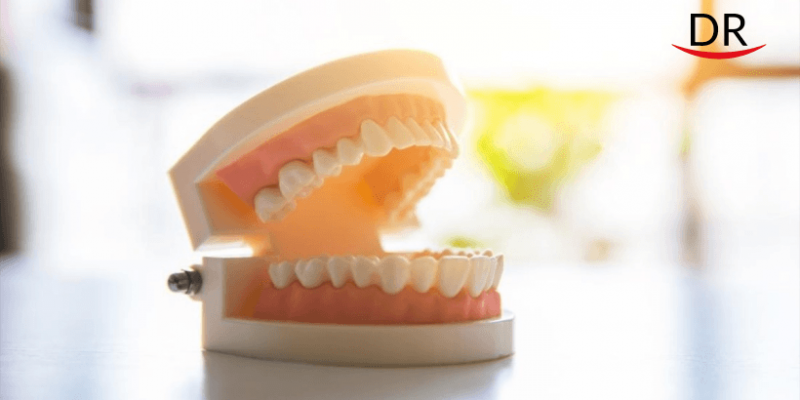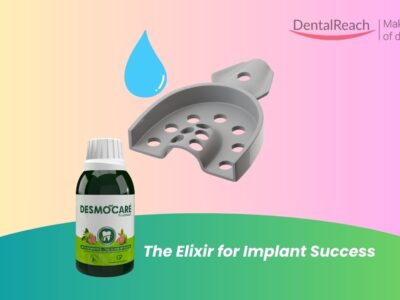Dental implants are generally considered to be a safe and predictable procedure for replacement of missing teeth which is routinely performed by many dentists.
But despite of following all the necessary protocols and presence of an adequate bone level, why do some implants fail within a 2- to 8-week period following implant placement??
It may be attributed to various deficiencies that we are encountering due to poor nutrient intake one of the major one being VITAMIN D deficiency. This is found to be more prominent in aging population where a greater percentage of dental implants are placed.
Recent dental implant studies have found that while smoking and generalized periodontitis are generally associated with an approximate 50% to 200% increase in dental implant failure, vitamin D deficiency is associated with up to a 300% increase in early implant failure.
Vitamin D in its inactive form (vitamin D3 or cholecalciferol) is a steroid hormone that is synthesized in the skin with adequate exposure to the sun (ultraviolet light) and/or acquired through diet.
FUNCTIONS:
- Bone growth and metabolism.
- Promotes the intestinal absorption of calcium and phosphorous.
- Vital for the health of the brain, cardiovascular system, respiratory tract, skin, and the immune and endocrine systems.
- Development of teeth, promotion of the immune response to oral microbial infection.
- Healing after periodontal, oral, and implant surgery.
Vitamin-D deficiency:
Vitamin D is considered deficient when serum levels are <10 ng/mL, insufficient when serum levels are 10–30 ng/mL, and optimal with serum levels >30 ng/mL.
Vitamin D deficiency is most known for its association in osteoporotic and menopausal women.
The increased prevalence of vitamin D deficiency can be attributed to three main causes:
1. INADEQUATE SUN EXPOSURE
The major source of vitamin D is directly from sunlight exposure with food only contributing to a little extent. The recommended dosage of vitamin D may be absorbed by exposing the face, hands, and palms to natural sunlight two to three times a week. In modern times, as most people prefer being indoors, there is a drastic increase in vitamin D deficiency level estimated to be affecting upto 70% population.
2. DIET
Also, most natural sources of vitamin D are animal based. Foods such as fatty fish (salmon and mackerel), fish oil, egg yolks, fortified milk/orange juice, and beef liver are high in this vitamin. People who are strict vegan lack the vitamin due to this.
3. MEDICAL CONDITIONS:
People with the following medical conditions are at higher risk of developing it:
- Kidney disease.
- Celiac disease.
- Cystic fibrosis.
- Crohn’s disease.
- Body mass index greater than 30.
Effect on Dental treatment:
INFECTION: It can impair the immune response to oral microbial infections. This will lead to increase in risk of oral infections and periodontitis.
This is because the protein synthesis by immune and epithelial cells as well as nonspecific immune responses are activated by vitamin D.
It also suppresses the destructive effects of chronic periodontitis by taking part in specific immune response.
BONE METABOLISM: It stimulates the activity of osteoclasts and increases the production of extra cellular matrix proteins by osteoblasts.
Its deficiency can lead to low bone density, pathologic fracture and poor bone healing after dental surgery along with failure of bone grafts and regenerative material.
PERIODONTIUM: It results in poor response to periodontal surgery. Such patients are more susceptible to gingival and periodontal diseases.
DENTAL IMPLANTS: Low levels of vitamin D in the blood can negatively affect healing processes and new bone formation on the implant surface.
One recent retrospective clinical study investigated the correlation between low serum levels of vitamin D and early dental implant failure. This study evaluated 885 patients who had been treated with 1,740 fixtures. Patients with vitamin D deficiency (serum levels of vitamin D <10 ng/mL) showed an early implant failure rate of 11.1%, compared to a failure rate of 2.9% in patients with normal levels of the vitamin (>30 ng/mL).
Conclusion:
Owing to recent evidence suggesting a strong correlation between vitamin D deficiency and early implant failure, vitamin D testing before bone grafting and implant placement has therefore been recommended.
A minimum 4-week supplementation program is recommended to elevate all vitamin and mineral levels prior to surgery, followed by an additional 2 weeks post-operatively if the patient is found to be deficit.
SOURCE: PERIO-IMPLANT Advisory.




















Vitamin D deficiency is responsible for the increased risk of tooth decay, toothache, and gum disease.
Yes doc…being an important component for proper mineralization, its deficiency causes defects which makes teeth more vulnerable.